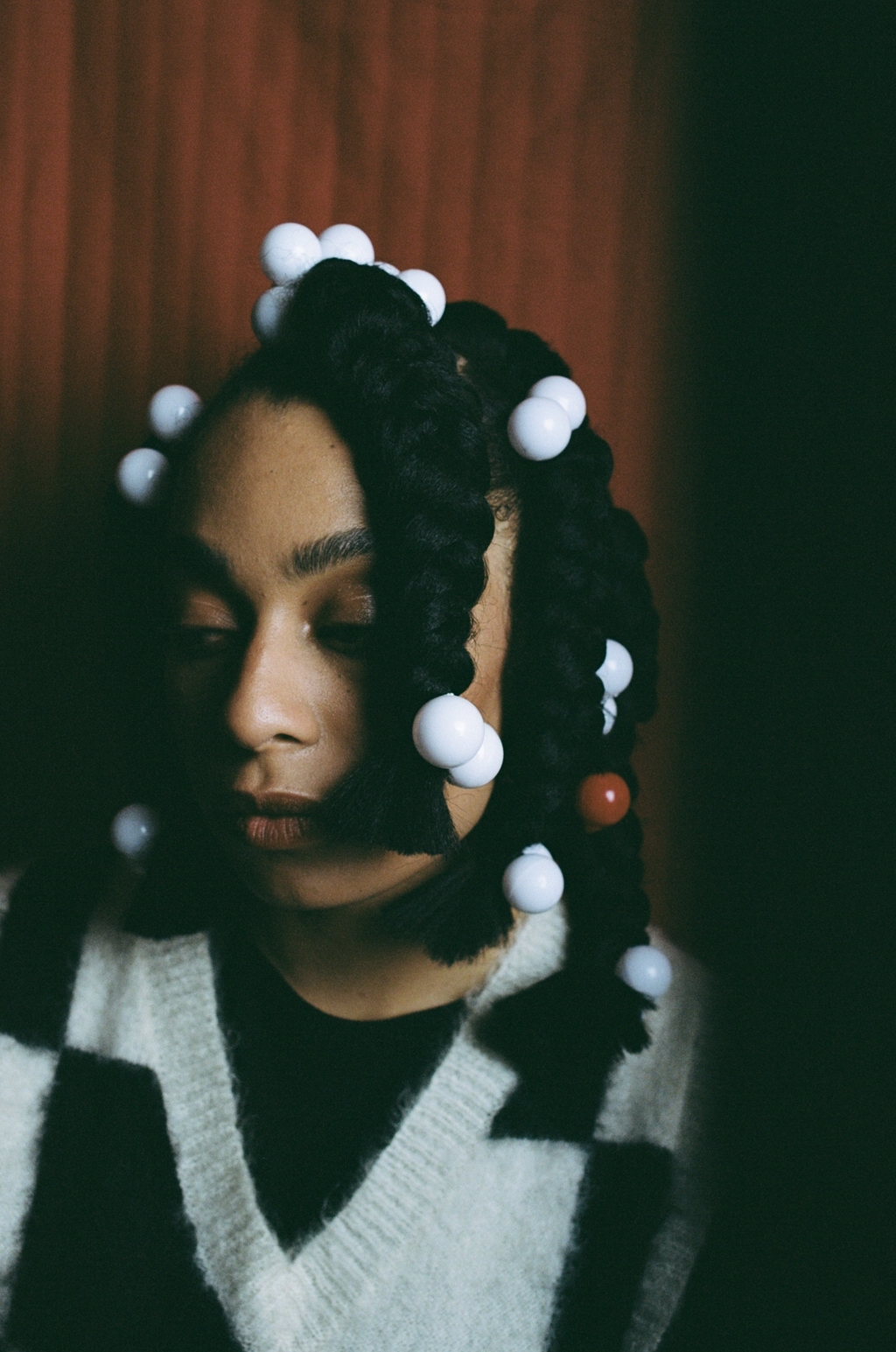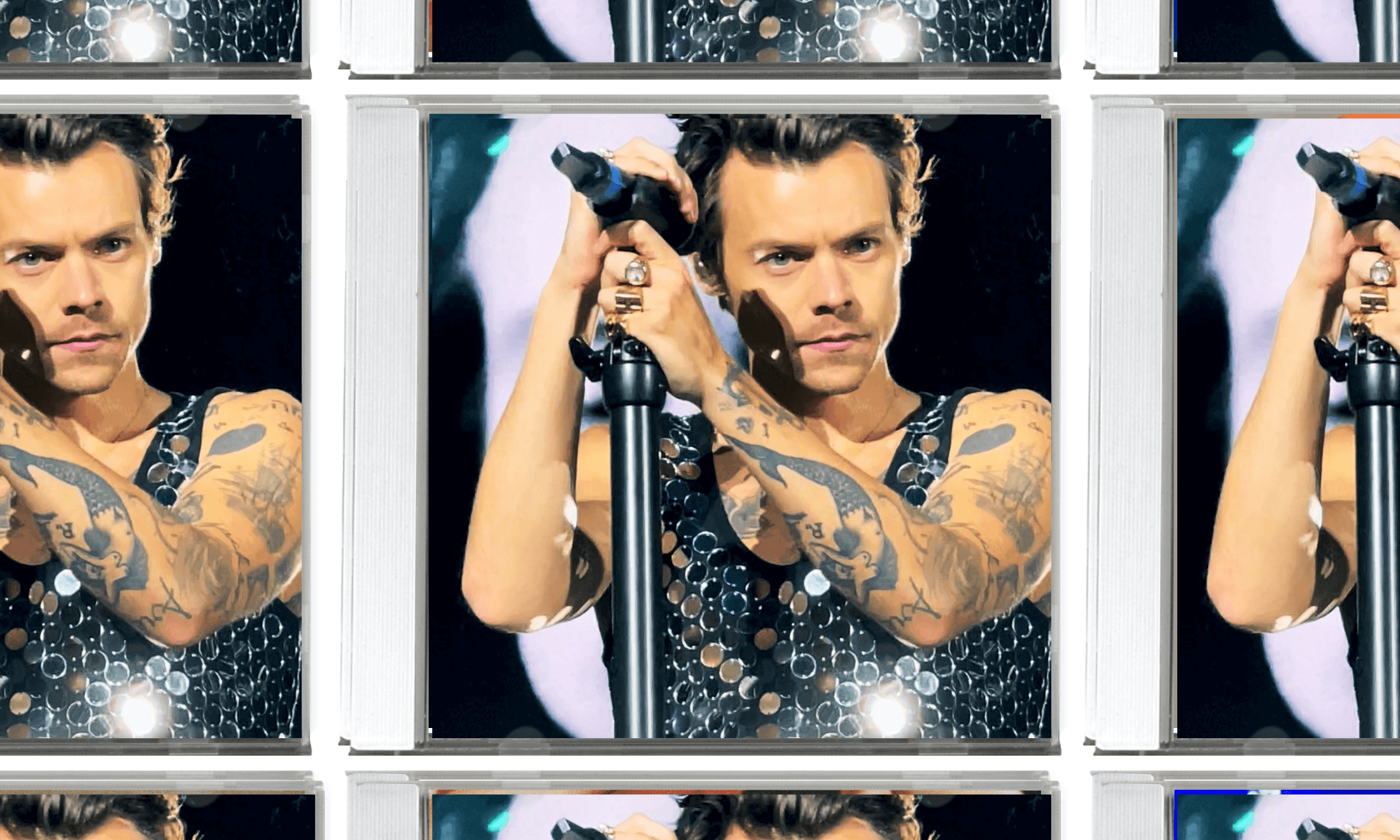
Photography by Akinola Davies Jr
Celeste is surprisingly ebullient when we meet. I say surprising, because Glastonbury is devastatingly hot and most people are in a strange daze of dehydration and sweatiness by this point of the weekend – but the Brighton-raised singer-songwriter seems composed and full of joy.
Her performances at the festival are a soothing balm to the relentless weather – her soft and powerful vocals have the crowd mesmerised as they sway along, fans flickering in hand.
Celeste’s latest video for single, ‘Coco Blood’, finds her channelling that serene soulfulness in Jamaica, exploring and celebrating part of her ancestry. We had a chat with her about role models, childhood and feeling confident in pursuing your dreams.
gal-dem: Who were your role models growing up?
Celeste: From a young age, I always had a lot of confidence instilled in me from my mum. She’d always tell me, “You can do anything.” I was so hairy as a kid compared to everybody in my school – I had a monobrow, the hairiest arms and I’d go home and say, “Everyone’s going on about how hairy I am and my eyebrow isn’t helping!” And my mum would say, “Don’t worry.” So, my Mum was a role model in that way – she always embraced herself and embraced her body however it changed. And she still does, even as she gets older, she’s not one of those people that’s trying to stop time. There were a lot of singers I listened to that I looked up to. A lot of the women that I looked up to, I realise now I’m older, were people who were just independent and made their own way – who trail-blazed against anything they ever came up against. So those are the sorts of women that I like to surround myself with too, broadly speaking.
Speaking about growing up in general, when you were a kid, what did you want to be?
There were so many things I wanted to be when I was a kid. I wanted to be a conwoman when I was nine years old, because I saw that program Hustle. I thought it was so cool, they get to wear suits all the time! Then I realised that that’s not the only job where you can wear a cool outfit. I wanted to be a hatmaker, mainly when I was a teenager. I think it was because of reading Alice’s Adventures in Wonderland as a kid, it was a book that I kept reading. I was completely enthralled by it, and I kept reading as an adult. I think I was really interested in the illustrations and that made me draw hats and things like that. My favourite character was obviously the Mad Hatter.
Would you consider that kind of element of fantasy something that you’ve carried over to your work?
Yeah, I think that when I first started writing I was still quite young, so I’d maybe write about fantasy. But as I got older I started to just write really about what’s happening in my life, as much as possible. When things that aren’t as poignant to you stop happening in your everyday cycle, you can kind of look to other people and observe and seek some inspiration from that instead. And that’s been really helpful.
When did you start writing?
There were always points as a teenager where I’d jot stuff down, but I never really knew what it was for. There were just words that would come into my head and I didn’t really know what to do with them. I didn’t play an instrument and I wasn’t from a musical background, so it wasn’t obvious to me just to go and pick up my guitar or go on the piano and just put words to music. Then I started writing properly when I was 18, and that’s when it became more of a focus and I realised that was something that I could do.
“This is something that I really want to do with my life and my time, but am I good enough to do it?”
Can you tell us about ‘Coco Blood’?
There’s quite a lot of context to make the song make sense, because at the time, I wasn’t exactly sure what I wanted – but I had this title, and to me it was relevant for my heritage for obvious reasons. In Jamaican culture the word “coco” is used to describe various different things – for example it’s a kind of bread. It’s basically just talking about my dad, who is the half of me that is Jamaican. So in the second verse, I talk about him, but in the first verse I’m just talking about myself and my new experiences.
I’d written it as I’d just moved to London, and the chorus is “Are you warm enough?” – it’s just an inner-conversation that I was having at the time. “This is something that I really want to do with my life and my time, but am I good enough to do it? Do people actually care about it and notice? And do I have the drive to keep going even when it’s difficult?” I think sometimes you can get lost in your delusions and not actually just sit and take stock. In the end I thought, “Fuck it, I’m going to just do this”.
How connected are you to your Jamaican side?
It’s something I didn’t really get to understand as a child growing up, because my mum looked after me by herself from when I was three years old, and that’s the white side of my family. They’re all from Romford, Dagenham, all of those areas. So when I grew up, it was around a lot of really masculine, white working class men, which I actually love. I was quite separated from my Jamaican side – from my dad’s side of the family – until I was 10, when I spent a bit more time with my dad. And as I got older and I pursued a relationship with him myself, I got to understand that there are parts of us that are really similar that weren’t necessarily taught. It was just something that I was born because that’s my dad.
I then went to Jamaica as a teenager to go and meet family and experience it, and it definitely was a big moment for me to fill a hole. It was about understanding a culture and being comfortable with it and loving it. That was really nice. The video has some cousins in it and some cast members in it too, but everybody that was picked was picked for a reason. It’s directed by Akinola Davies Jr and aesthetically he’s one of my favourite directors – I think he also really sums up and manages to capture black culture in a way that feels really honest, never contrived.
Follow Celeste on Instagram here.








